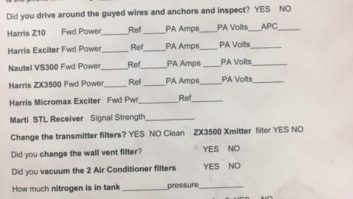You’ve heard of clean jokes. Now get ready for “clean rooms” as the next big buzz phrase.
You probably think of a clean room as a “regulated space that is designed to control contamination and aids in the removal of airborne particles,” as one technical website puts it.
But that’s not what we’re talking about here. The term also is used in marketing, though many professionals are not yet familiar with it.
The website TechTarget states: “A data clean room is a technology service that helps content platforms keep first-person user data private when interacting with advertising providers.”
The goal is to scale the use of identity for advertising purposes while protecting the privacy of consumers.
If you’ve ever placed advertising on Amazon, Facebook or Google, you have effectively paid for the use of a clean room. In a clean room, these three platforms can share aggregated customer data with advertisers with controls. In this case, an advertiser could detect duplicated reach. Even if you’re not a marketer, your personal data has been “washed” in a clean room, so that it becomes anonymous. To date, these large platforms have been the entities that decide what happens in their own clean rooms.
This has gradually begun to change as more companies opt for storing and manipulating their own first-party data. This transition is being accelerated by Google announcing the end of third-party cookies in Chrome by the end of 2024. To remind you, third-party cookies can harvest IP addresses, browser and search history, device info, sexual preference and much more. Several browsers, including Safari, have already eliminated cookies, but since Chrome has the largest share of users, the digital advertising industry is trying to develop plans for life after cookies are baked.
The use case for clean rooms is being hotly debated because of scale, cost and implementation. Many feel that a clean room can go beyond just surfacing digital ads to users without being fined for privacy violation by government entities. It’s been shown that clean rooms can provide marketing attribution and contribute to machine learning.
Early this year, Amazon Web Services is launching AWS Clean Rooms. Yes, Amazon ads already run through a clean room via Amazon Marketing Cloud, but this new service permits companies to mix anonymized first-party data with other AWS users. This is a large sign that clean room tech is poised for growth. While Amazon’s ad biz is already taking a huge bite out of Meta and Google, this gives them first-mover advantage in learning how to maximize the data.
Three reasons that radio should care about clean rooms:
- First-party data is vital to your own marketing success.
- Your account executives must be the local media experts as they call on your clients, so they need to be able to explain clean rooms.
- The future could entail your being the local media leader in providing clean room advertising solutions for your clients.
Next step is simply learning more about clean rooms by doing your own research. Happy cleaning during 2023!












